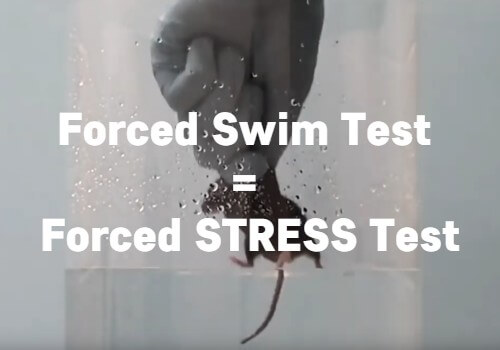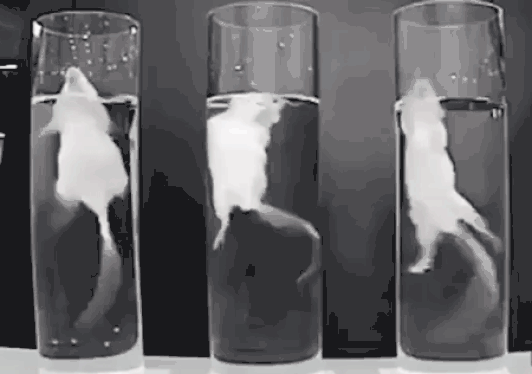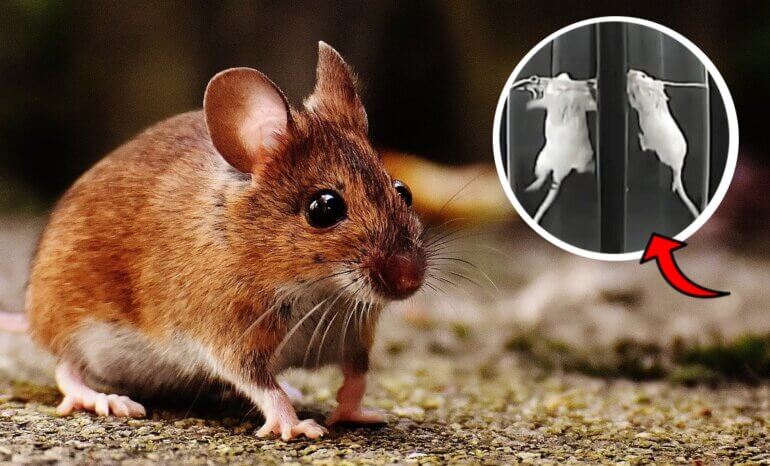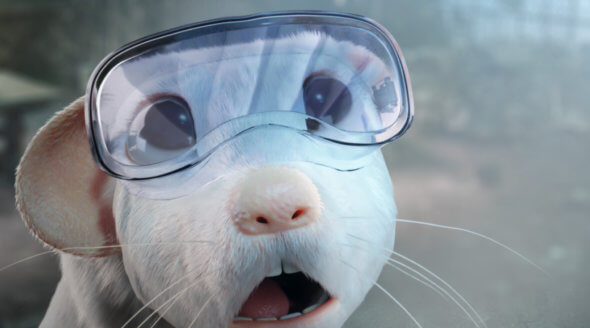Why Tormenting Mice Tells Us Nothing About Human Stress
A growing number of experts agree that animal “models” for human mental health conditions simply do not work, yet some experimenters keep tormenting mice, rats, and other small animals in an attempt to learn something about post-traumatic stress disorder and other human mental health conditions. Here’s why such attempts are a waste of resources, time, and animals’ lives.
Forced Swim Test = Forced STRESS Test
In the highly criticised forced swim test (FST), small animals are put into inescapable beakers filled with water. Terrified, they swim in search of an escape, and experimenters record how long it takes before they stop swimming and float on the surface.
Experimenters absurdly claim that this test tells us about human mental health conditions, such as those caused by stress – but the science does not hold water and distressing animals does not help humans.
The use of the FST in depression research is widely discredited, and it’s also an unreliable way of studying other human mental health conditions.
Mice and Humans Have Different Stressors
Animals used in this archaic test experience acute stress that is different from what humans suffering from stress-related mental health issues go through.
Human stressors that contribute to poor mental health are typically chronic in nature. They include psychological symptoms that are not measurable in other animals, such as flashbacks, emotional numbness, and detachment.
Barren Laboratory Conditions Lead to Unreliable Results
Living far away from their normal habitats and being unable to do anything that is natural and important to them while every aspect of their lives is controlled by experimenters, mice and rats in laboratories endure psychological and physical stress every day from spending their lives in a cage.
The conditions the animals are kept in undermine the integrity of the data and the relevance of the FST for human stress research.
Tormented and Killed
Consider how exhausting and distressing this test must be for rats and mice. Imagine spending your life trapped in a cage before being forced to take part in an experiment meant to cause you stress, only to be killed afterwards.
When the animals have served their purpose, experimenters may kill them by giving them an overdose of anaesthetic, breaking their necks, gassing them, or striking them on the head. Their bodies are then thrown away like disposable laboratory equipment.
Waste of Time, Money, and Lives
Trying to understand the fundamental human biology underlying stress and anxiety by forcing rats to swim in a beaker of water is doing a disservice to those suffering from mental health problems.
Stress-related mental health conditions, such as depression, are some of the most common and debilitating conditions in the world, making it vital that scientific research achieve translatable results that are relevant for human clinical practice. Institutions could stop using the test right away with no detriment to mental health research.
There are plenty of human-relevant approaches that do not involve stressing animals. Researchers are already using three-dimensional models of the brain grown from human stem cells to gain insights into human mental health conditions.
Use Your Voice to Help Animals in Laboratories
Following discussions with PETA entities, 15 companies and three universities, including King’s College London, have declared that they do not intend to use the forced swim test in the future. Despite this, some institutions are still carrying out or refusing to ban the test.
Join us in calling on the University of Bristol to ban the forced swim test:








